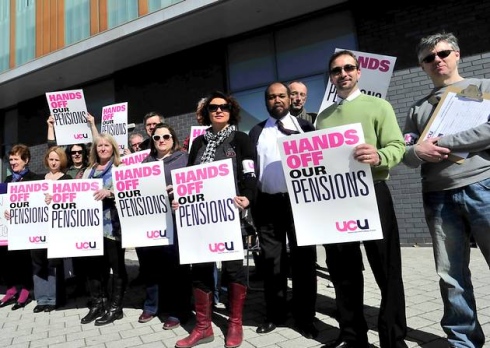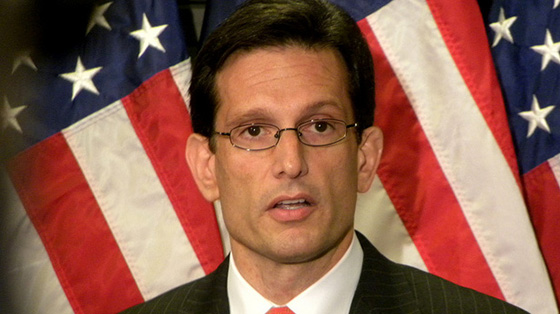What if they held a strike and nobody noticed?

Click here to listen to the broadcast of You Tell Me on KTBB AM & FM, Friday, Nov. 4, 2011.
As folks traveling on the KTBB trip to London and the English countryside were preparing to depart London for our return to Texas last week, the newspapers were abuzz with news of the pending one-day strike by public sector employees in the U.K. We who were traveling through London’s very busy Heathrow airport were particularly interested given the fact that among those slated to go on strike were employees of U.K Border Control.
If you have ever traveled internationally, you know the drill. You take a crushingly long plane ride only to face having to get your passport examined by a drab-looking individual armed with some perfunctory questions and a rubber stamp.
The process can add two hours or more to one’s already lengthy travel day.
According to press accounts, airline and government officials were gearing up for chaos at Heathrow. A couple of airlines cancelled some flights. Airport personnel rounded up a bunch of bottled water and some chips, crackers and fruit to offer to travelers stuck in hours-long lines.
In my piece on this subject Tuesday evening on Fox51, I predicted that air travel in the U.K. would “seize.”
But I was wrong.
This past Wednesday, something unexpected happened on the way to a crippling strike at London’s Heathrow airport.
The wait times got shorter.
No, it wasn’t because there were that many fewer travelers. Yes, a few flights were cancelled. But the vast majority of ordinary volume passed through Heathrow on Wednesday.
The airport ran more smoothly even though there were fewer Border Control agents on hand to process incoming passengers. Supervisory personnel moved more travelers with fewer people.
It turns out that these “public servants” hadn’t exactly been killing themselves on the job. What a surprise.
The lesson to be learned from our British cousins couldn’t be more straightforward. If Harrod’s, the famous London department store, is slow and inefficient in processing sale transactions for customers, those customers will head over to Selfridge’s. If such occurs to a sufficient degree, Harrod’s will fail and its employees will lose their jobs.
But if immigration officials are slow and inefficient, the “customers” are obliged to wait. The dawdling bureaucrats are then able to point to the long lines and make the case for expanding their own ranks – all the while confident of the continuity of their paychecks and the ultimate receipt of a generous pension.
So confident are they that when a cash-strapped British government proposed deferring public employee retirement to age 66, these public “servants” responded by going out on strike.
All of which proves, as if proof were needed, that government is by its very nature sclerotic and inefficient. Lose your American Express card and they’ll get you a new one in a couple of hours almost anywhere in the world. But it takes upwards of a month for the State of Texas to mail you a renewal of your driver’s license.
Public payrolls and benefits packages have long ago expanded past sustainability while service has not improved a bit. You can’t help asking if the job of stamping passports couldn’t be contracted to a private vendor. We already have privately run prisons.
Government is not efficient. Never has been. Never will be. That’s why we need it to be as small as possible.
And that’s a large part of what the 2012 election will be about.








I agree. We need to privatize our military and police and fire as well. Think of the improvements!
I grew up in a “union” household. My Dad had his head split, bones broken and face scared in the wars to get the merchant marine unions off the ground. I respected the man for the courage of his convictions in those early days. I also learned that unions foster just so so performance by it’s members. The threat of strike, long drawn out legal issues and “blue flu” slow downs keep empoloyers from releasing those who don’t cut it and from rewarding those who excell. It breeds a class of guys and gals who “just do enough to get by”. I listened to my Dad complain about the “dead wood” (as he put it), I saw it as a Police Officer with the Rubber Gun Squads and I see it in public unions where they have teachers and others are kept on the payroll due to seniority in rooms where they don’t perform their jobs.
Believe me, if it were not for the media…America would not notice most strikes…the only one who wins, by the way, is the Union Management…the workers lose wages, the nasty ol’ businessmen lose productivity and revenue; but, those fat cat union bosses still make their salary and get bonuses for new contracts. Makes me sick.
I heard your statement this morning and I couldn’t agree more. When Ronald Reagan fired the air traffic controllers everyone predicted the air spaces over America would be full of mid air crashes….never happened.
It’s past time for public employees to have to work hard and compete as the rest of us do. It’s also time for them to participate in their retirement and health care….I pay for all of mine as the owner of a small business.
I have one quote for the government….” get out of our pockets and off our backs, we will do the rest.”
Tom Martin
No truer words have been spoken than by President Reagen when he said that government was not the solution; government WAS THE PROBLEM! Government efficiency is an oxymoron.
It has taken me a while to respond to this,thinking you were a little off in your view. Did you stop to think why the line would move faster when the boss is doing the job? It is the same as you making a decision at the network.YOU are in charge YOU can make the call,the decision is made ,NO permission needed. The rank and file on the front line of any (government)better not think for them self’s,make a decision on there own. That’s not there job and discipline is not far behind if they stray.I live in that world of government employees for 25 yr and we do and will be reminded of our place as needed.Because that’s how supervisors keep there jobs.